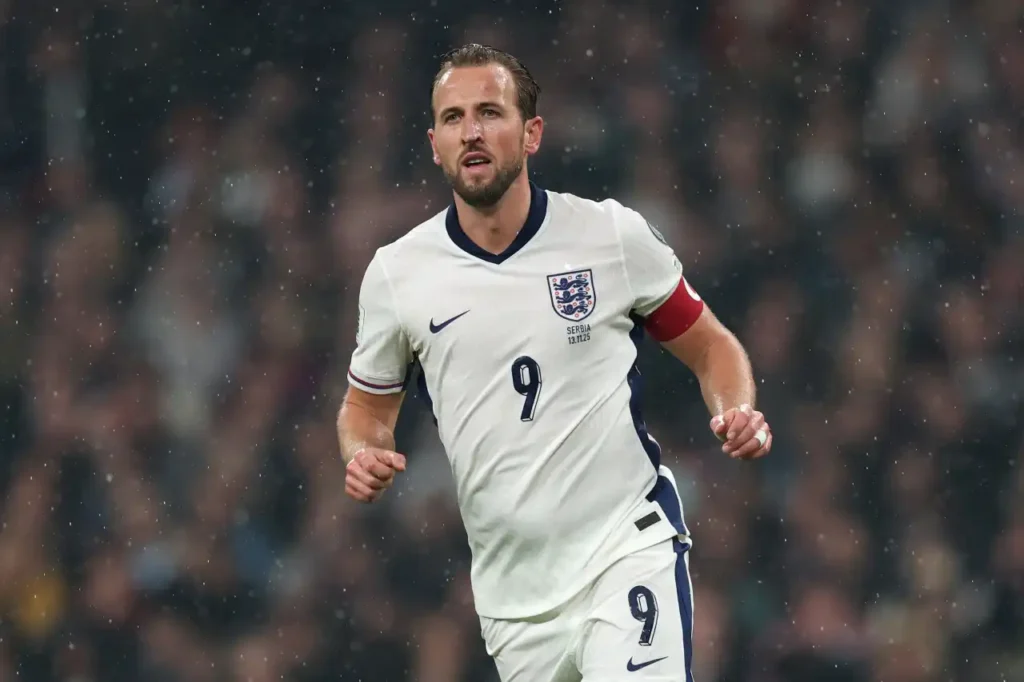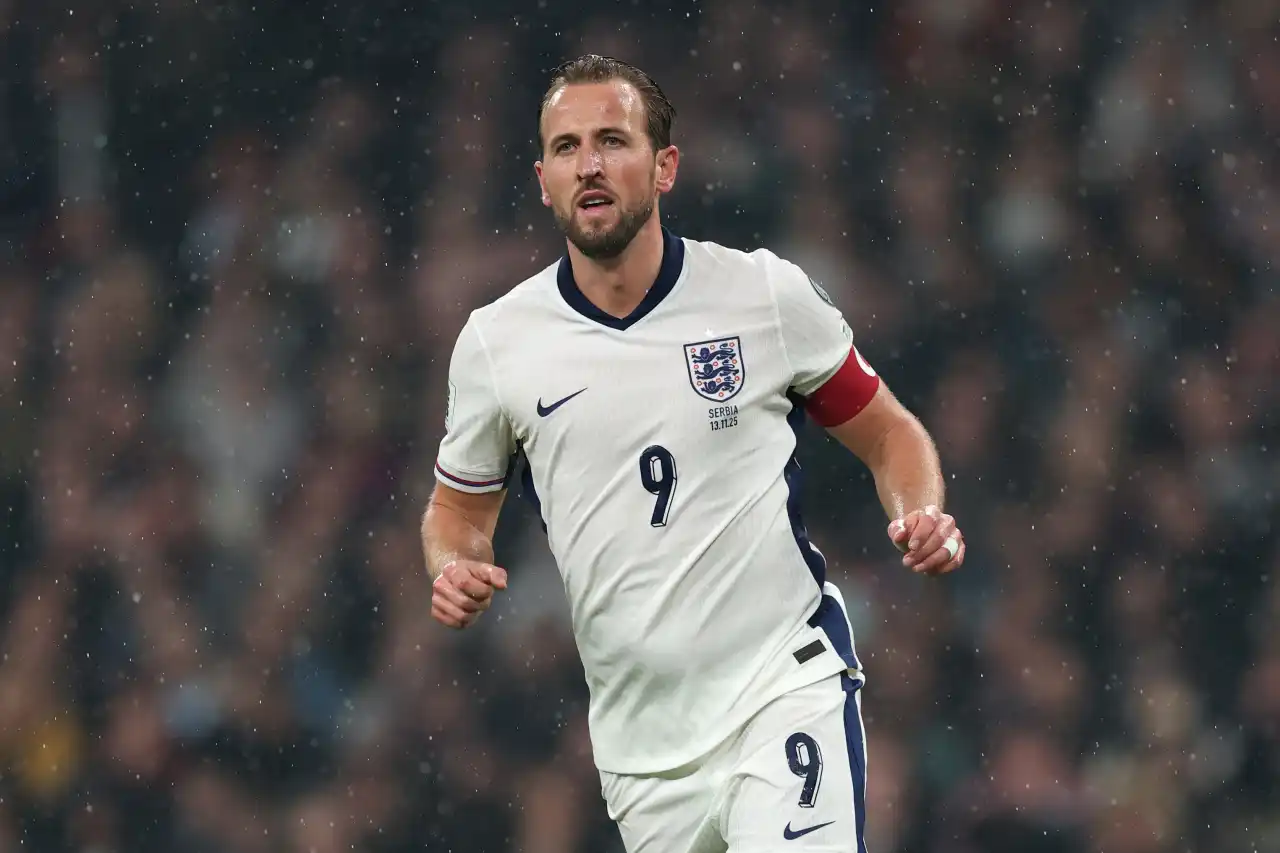Concerns have begun to grow around Harry Kane’s positioning for England after the Three Lions’ 2-0 win over Serbia at Wembley, even though the captain earned his 111th cap and once again showed the range of qualities that have defined his career.
Kane didn’t add to his incredible tally of 76 goals for his country, but his overall influence on the pitch was clear to anyone watching. Still, his deeper role continues to spark debate, and one talkSPORT pundit has suggested that something is not quite right with how the striker is being used.
Kane has spent much of the season at Bayern Munich drifting away from the penalty box, dropping into midfield, and sometimes even starting attacks from inside his own half. His game has shifted into a hybrid role, part striker and part playmaker.
He already has 23 goals in 17 games for Bayern, yet he has also been acting like a No.10 and at times almost as a deep-lying midfielder. Tottenham fans watched him do this for years and often admired his willingness to help the team in every area of the pitch.
But now, with the world focused on him ahead of next summer’s World Cup, every movement is under heavy scrutiny.
On talkSPORT’s The Sports Bar, Jamie O’Hara and Jason Cundy praised Kane’s versatility but raised questions about how productive his new role really is for England.

According to Cundy, there was a moment in the Serbia game where Kane received the ball as the deepest outfield player before launching a brilliant 60-yard pass to Marcus Rashford.
It showcased his unreal ability, yet O’Hara immediately wondered whether that is where England truly need their most dangerous goal scorer.
O’Hara admitted that he enjoys watching Kane’s range of passing and understands why he likes to drift into pockets of space. He said that Kane’s technical level is unbelievable and his ball retention is almost flawless.
At Bayern, he has often been seen stepping back into midfield, helping build play and creating chances for others. But while O’Hara admires the skill, he also questions the necessity. For him, Kane is at his best when he is in and around the penalty area, affecting games where it matters most.
He finds it worrying to see Kane picking the ball up behind Declan Rice or making last-ditch tackles on the edge of his own box. In O’Hara’s view, if the striker is defending so deep, something in the structure has gone wrong.
Cundy agreed to some extent but also pointed out that Kane has evolved into a complete attacking footballer. When he drops deep, he often follows his pass and gets himself into the box within seconds.
Cundy believes Kane is capable of playing several roles at once because of his intelligence and fitness, but he also warned that he cannot be expected to operate effectively from the edge of England’s area.
Still, he finds Kane’s ability to contribute in transitions impressive and thinks that the relationship between the striker and the rest of the team will be interesting to follow as England get closer to the World Cup.
The talk continued with both pundits acknowledging how rare Kane’s talent is. Cundy compared the striker to Wayne Rooney, explaining that no matter where Rooney played midfield, No.10, either wing, or as a forward he still remained one of the best players on the pitch. Kane has reached a similar level.
He can score goals effortlessly but can also dictate the rhythm of play if required. His technical quality means he could fit multiple roles, but the real question is whether England truly need him to.
O’Hara argued that England do not require Kane to drop into defensive midfield positions, insisting the team loses something when their greatest finisher is so far from goal. Cundy responded by highlighting that Kane’s movement can create valuable space behind him.
England have pacey players in wide areas, and when Kane drops deep, defenders often follow, opening gaps for runners to attack. He suggested that this might be one of the reasons England boss Thomas Tuchel prefers quick wingers and why someone like Jack Grealish could find himself out of the World Cup squad.
The debate reflects a wider concern about how England will set up next summer. Kane is still one of the world’s best footballers, capable of doing almost anything on the pitch.
But how he is used could determine whether England get the best out of him. His deeper role brings out his creativity, yet it also takes him away from the area where he is most lethal.
The balance between those two sides of his game is becoming a major talking point, and as the World Cup approaches, fans and pundits alike will be watching closely to see how England manage their captain’s evolving style.

